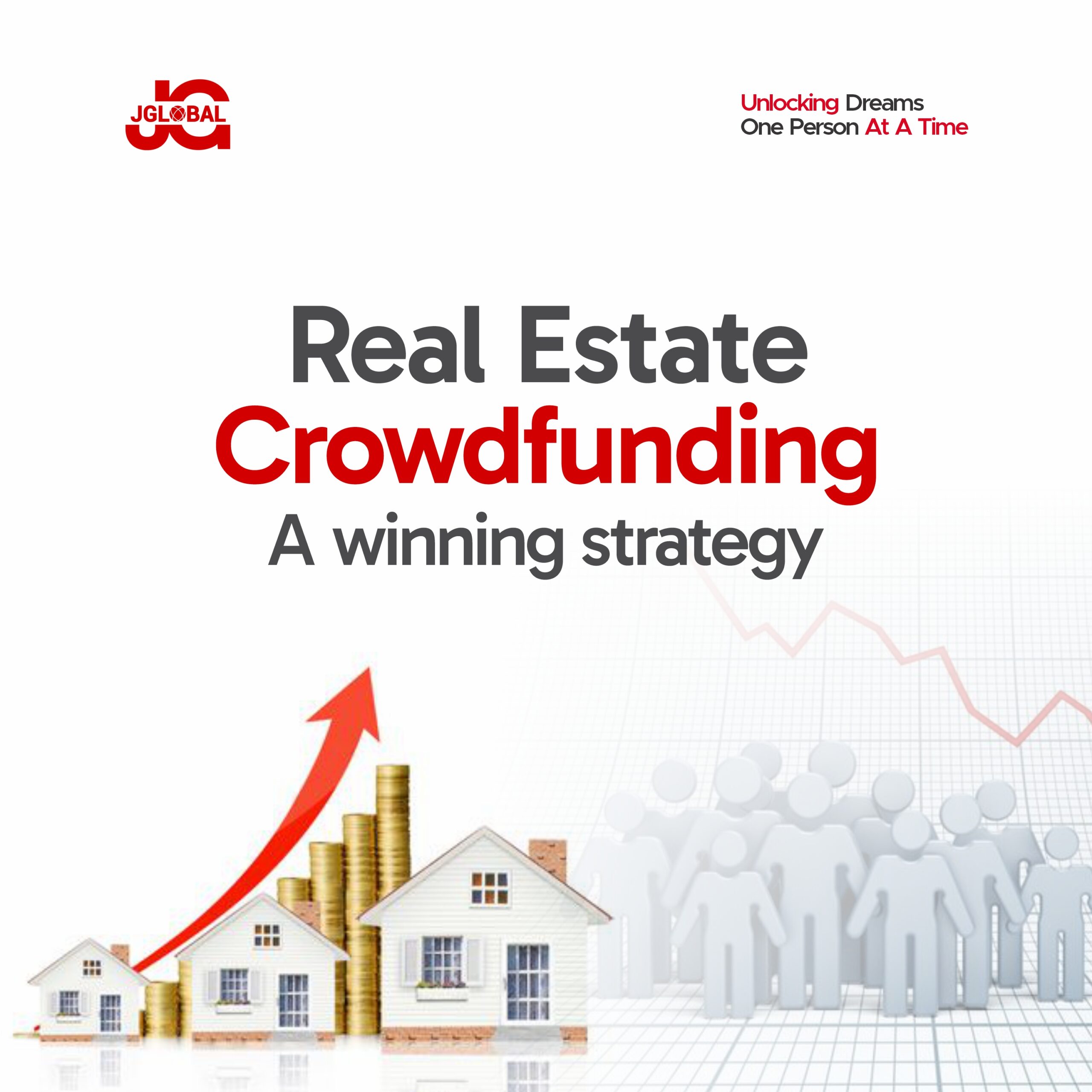REAL ESTATE CROWDFUNDING: A WINNING STRATEGY.

INTRODUCTION TO REAL ESTATE CROWDFUNDING
The Nigerian real estate market offers fantastic opportunities, but traditional investment can require significant capital. This is where real estate crowdfunding steps in, offering a new and exciting way for Nigerians to participate in the market. Real estate crowdfunding allows individuals to invest in “fractional shares” of a property. This means you don’t need to purchase an entire building or apartment. Instead, you can invest alongside others in a project, gaining ownership proportionate to your contribution.
WHAT IS REAL ESTATE CROWDFUNDING?
Simply put, real estate crowdfunding is a way for investors to contribute smaller amounts of money towards real estate projects, thereby spreading risk and increasing accessibility to the real estate market. Instead of needing substantial capital to buy a property outright, investors can now participate with smaller investments through online platforms and individuals.
SPECIFIC APPLICATION OF CROWDFUNDING IN REAL ESTATE INVESTMENT
In real estate, crowdfunding can fund a variety of projects such as apartment complexes, office buildings, or even renovations of existing properties. It allows developers to secure financing efficiently by tapping into a broader pool of investors who are interested in diverse real estate opportunities.
TYPES OF REAL ESTATE CROWDFUNDING
There are generally two main types of real estate crowdfunding.
- Equity Crowdfunding: Investors receive equity in the property or project in proportion to their investment. They share in the potential profits and risks of the ventures.
- Debt Crowdfunding: Investors provide loans to developers or property owners, earning interest on their investment over a specified period. This type offers a predictable return but typically with lower risk compared to equity crowdfunding.
WHY REAL ESTATE CROWDFUNDING?
Real estate crowdfunding offers several advantages:
- Diversification: Investors can diversify their portfolio across multiple properties or projects.
- Accessibility: Lower minimum investment requirements allow more individuals to participate in real estate investing.
- Reduced Risk: Spread risk across multiple investments rather than being solely responsible for one property.
- Ease of Management: Investors typically do not need to handle day-to-day management of properties.
HOW CROWDFUNDING WORKS IN NIGERIA AND HOW TO GET STARTED.
The Securities and Exchange Commission (SEC) regulates real estate crowdfunding in Nigeria. Reputable platforms operating within SEC guidelines offer a secure and transparent investment environment.
To get started, research different platforms, compare their offerings, and select one with a proven track record. Carefully review project details and conduct your own due diligence before investing.
Remember, real estate crowdfunding carries inherent risks, including project delays, vacancies, and market fluctuations. Always have a clear exit strategy in mind, understanding how you can sell your shares or receive returns on your investment.
CONCLUSION
Real estate crowdfunding presents a modern and accessible way to invest in the property market, offering benefits like diversification, reduced risk, and ease of entry. Whether you’re a seasoned investor or new to real estate, crowdfunding platforms provide opportunities to grow your wealth through strategic property investments.




You should add to your knowledge bank.